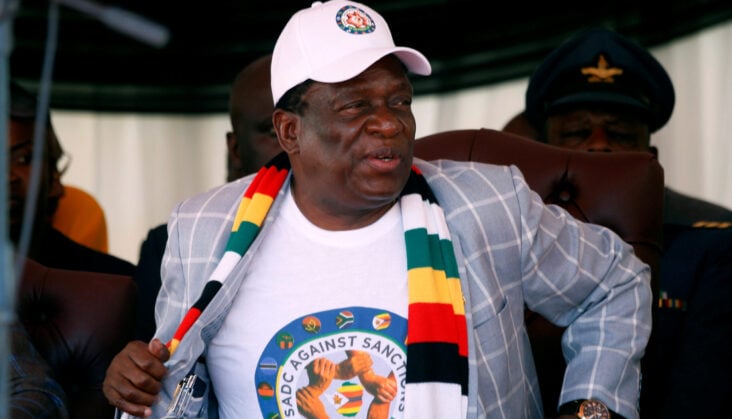The United States has recently imposed sanctions on Zimbabwe’s President Emmerson Mnangagwa, as well as several other senior leaders, for their involvement in corruption and human rights abuses. The move comes as the US government aims to hold accountable those responsible for the exploitation and violation of fundamental freedoms in the country.
The new sanctions replace a broader program that had been in place for two decades. As a result of the sanctions, the assets of Mnangagwa and the other targeted individuals in the US will be blocked, and they will be barred from unofficial travel to the country.
In a statement issued by the White House, concerns were raised about the ongoing political, economic, and human rights abuses witnessed in Zimbabwe. The targeting of civil society and severe restrictions on political activity have resulted in a stifling of fundamental freedoms in the country.
Furthermore, the statement highlighted how government leaders have misappropriated public resources for personal gain, contributing to a global criminal network involved in bribery, smuggling, and money laundering. The consequences of these illicit activities extend beyond Zimbabwe and affect communities in Southern Africa and other parts of the world.
Antony Blinken, the US Secretary of State, drew attention to multiple cases of abductions, physical abuse, and unlawful killings that have left the people of Zimbabwe living in fear. The US government aims to refocus and intensify its efforts to combat and hold accountable those responsible for these violations.
Among those affected by the sanctions are First Lady Auxillia Mnangagwa, Vice President Constantino Chiwenga, and Defence Minister Oppah Muchinguri. Additionally, several senior security officials, including members of Zimbabwe’s national police and Central Intelligence Organisation (CIO), have also been targeted. Businesspeople who have facilitated state corruption, such as presidential advisor Kudakwashe Tagwirei, his wife, and their businesses, are also on the list.
The new list of sanctions has seen the removal of restrictions on individuals who were previously sanctioned by the US but are not on the current list. Nick Mnangagwa, a spokesperson for the Zimbabwean government, welcomed the lifting of the old sanctions program as a vindication of President Mnangagwa’s foreign policy. However, he called the new sanctions “illegal.”
In response to the sanctions, Farai Muroiwa Marapira, a spokesperson for Mnangagwa’s ruling Zanu PF party, emphasized the bittersweet results of the president’s efforts to be inclusive and cultivate positive relationships with other countries. Marapira argued that as long as the president, first lady, and senior officials remain sanctioned, Zimbabwe continues to be burdened by the consequences of these restrictions, which are deemed illegitimate.
The US initially imposed economic and travel sanctions on Zimbabwe in the 1990s, specifically targeting then-president Robert Mugabe and numerous high-ranking government officials. These measures were put in place due to accusations of undermining democracy in the country. Several other countries, including the United Kingdom and members of the European Union, have also implemented sanctions against Zimbabwe.
President Mnangagwa, who was inaugurated for a second term as Zimbabwe’s leader last year, has previously blamed economic sanctions for hindering the country’s development.
The latest move by the US to impose targeted sanctions on President Mnangagwa and other senior leaders demonstrates the continued effort to address corruption and human rights abuses in Zimbabwe. The international community will be watching closely to assess the impact of these sanctions and how they may influence the country’s political landscape.
Image Credit: REUTERS/Philimon Bulawayo





